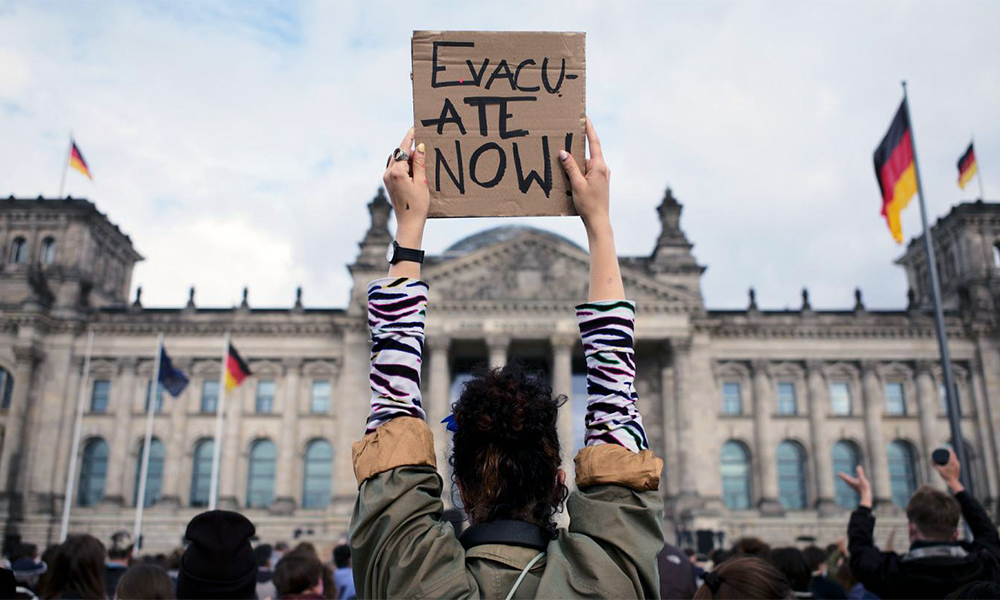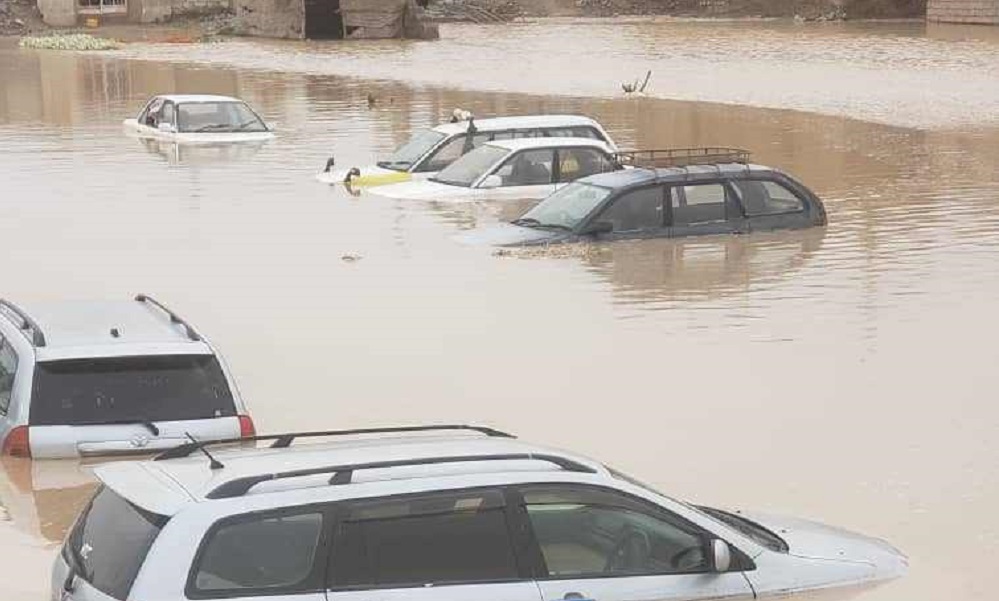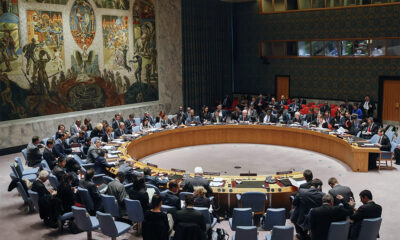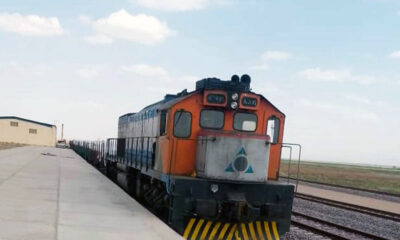Latest News
Germany to limit number of Afghan refugees to 5,000

German authorities are planning to cap the number of Afghan refugees who will be allowed entry into Germany to 5,000 per year.
German Interior Ministry is considering the move in order to keep the programme operationally feasible, German news magazine Der Spiegel said as reported by SchengenVisaInfo.com.
Over 18,800 Afghans entered Germany since the Islamic Emirate of Afghanistan (IEA) returned to power in August last year, according to Germany’s Interior Ministry.
However, more than 10,000 persons who have been granted admission by the German authorities continue to remain in the country, Info Migrants reported.
The acceptance rate has also fallen in other EU countries.
The European statistics provider, Eurostat, stated that the number of acceptances in the EU decreased by five per cent in 2021 compared to 2020.
According to Eurostat, nationals of Afghanistan remained the second main citizenship of first-time asylum applications for the third year in a row. They accounted for 16 per cent of the EU total, or 83,520.
This comes amid reports that German authorities are displacing existing Afghan refugees from accommodation centers in order to make way for those coming from Ukraine.
Latest News
At least 1,500 families affected by recent floods: IRW

The Islamic Relief Worldwide (IRW) organization has reported that the rains and floods of the last week have claimed the lives of many Afghan and incurred huge financial losses.
According to the organization, a total of 1,500 families have suffered as a result of the recent floods and hundreds of livestock have also been lost.
IRW added that following the recent rains, 900 houses were partially or completely destroyed and 93,000 hectares of agricultural land was damaged.
This comes amid an ongoing economic crisis in Afghanistan which has left millions of people reliant on aid.
The disaster management ministry meanwhile confirmed earlier that 99 people died and 64 others were injured as a result of the heavy rains.
Latest News
Russia says US facing humiliation in Ukraine like in Vietnam and Afghanistan

Russia said on Sunday U.S. lawmakers’ support for $60.84 billion more in aid for Ukraine showed that Washington was wading much deeper into a hybrid war against Moscow that would end in humiliation on a par with the Vietnam or Afghanistan conflicts.
Russian Foreign Ministry spokeswoman Maria Zakharova said it was clear that the United States wanted Ukraine “to fight to the last Ukrainian” including with attacks on Russian sovereign territory and civilians, Reuters reported.
“Washington’s deeper and deeper immersion in the hybrid war against Russia will turn into a loud and humiliating fiasco for United States such as Vietnam and Afghanistan,” Zakharova said.
Russia, she said, will give “an unconditional and resolute response” to the U.S. move to get more involved in the Ukraine war.
The United States lost more than 58,000 military personnel in the 1955-75 Vietnam War, which ended with Communist North Vietnam’s victory and takeover of the South, while hundreds of thousands of civilians were killed.
In the 2001-2021 war in Afghanistan, the U.S. reported 2,459 dead and over 20,000 wounded in the conflict which ended with the withdrawal of U.S.-led coalition forces and return to power of the Islamic Emirate of Afghanistan (IEA).
Latest News
Iran says water is an important factor in expansion of ties with Afghanistan

Iran’s special representative for Afghanistan, Hasan Kazemi Qomi, said on Sunday that water is an important factor in the expansion of bilateral relations, expressing hope that the flow of water to his country will continue.
Qomi said this in a meeting with Acting Minister of Foreign Affairs Amir Khan Muttaqi in Kabul, the ministry said in a statement.
The envoy expressed gratitude for removing obstacles to the flow of water from the Helmand River to Sistan and Baluchestan province of Iran.
Meanwhile, Muttaqi noted that there were good rains in the country this year, as a result of which, after several years of severe drought, Helmand River’s water flowed to Nimroz province of Afghanistan and into Sistan and Baluchestan province of Iran.
He assessed the relations between Afghanistan and Iran as “friendly and positive” and hoped relations will expand further in various fields.
During the meeting, Iran’s envoy also thanked the Islamic Emirate for its stance on Israel’s attacks on Gaza and for having condemned the attack on the Iranian consulate in Damascus.
-

 World5 days ago
World5 days agoUN Security Council to vote Friday on Palestinian UN membership
-

 Business4 days ago
Business4 days agoCommerce ministry inks 10 MoUs to boost development of small and medium-sized businesses
-

 Sport4 days ago
Sport4 days agoRashid Khan threatens BBL pullout after Australia postpones Afghanistan T20I series
-

 Latest News5 days ago
Latest News5 days ago2023 marred by ‘tremendous challenges’ for Afghanistan
-

 Sport5 days ago
Sport5 days agoAfghanistan loses 3-1 to Iran in Futsal Asian Cup match
-

 Latest News4 days ago
Latest News4 days agoOver 6,000 acres of land cleared of poppies in Badakhshan
-

 Health5 days ago
Health5 days agoBalkh health officials report sharp increase in number of cancer patients
-

 Latest News4 days ago
Latest News4 days agoMSF ‘deeply concerned’ over new phase of deportations of Afghans from Pakistan
























